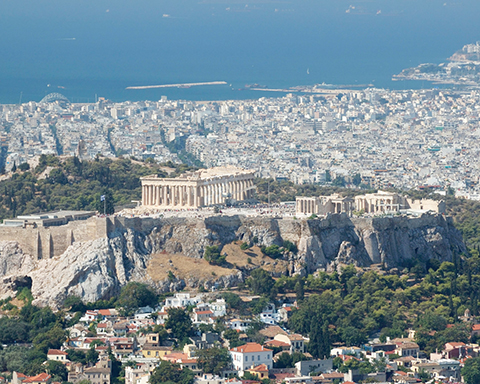 KUWAIT: Greece appears lucrative for realty investors nowadays in shadow of declining plots' prices. However, such a venture in the local market is shrouded with multiple risks considering the ailing economy.
KUWAIT: Greece appears lucrative for realty investors nowadays in shadow of declining plots' prices. However, such a venture in the local market is shrouded with multiple risks considering the ailing economy.
Practically, external businessmen have been given the green-light to take advantage of the declining prices in the real-estate sector, also being encouraged with prospected decisions by the government to lower taxes and facilitate acquisition.
However, Kuwaiti experts advise those pondering such a venture to adopt a wait-and-see attitude, considering unstable conditions, particularly at the economic level. The Greek economy has been ailing for some time and the Europeans have recently allocated a new bailout worth euro 85 billion in a bid to shore it up.
Suleiman Al-Dulaijan, Manager of the Real-Estate Al-Dulaijan Office, affirms that there is an opportunity to capitalize on the low prices in the real-estate sector in Greece "however there are high risks." "It is a good investment opportunity but we need to assess volume of the (economic) problem, when it may end and the supply and demand status," he said.
Determining the Greek currency value is essential for the investor, he opines, noting that there is still possibility that Greece may withdraw from the Euro zone and reinstate its old currency and such an eventuality will lead to fall of prices of services, commodities and assets namely properties.
Moreover, the external investor should study acquisition laws' whether the businessman may be relieved of heavy taxes. The bulk of the Greek domestic product is based on tourism; thus investing in this sector is good with prospects one may be able to purchase a whole island for prospected development.
Bankrupt nation
Omar Al-Shallal of Al-Shallal Properties Company said he would personally avoid investments in Greece because "it is a bankrupt nation and chances of economic recovery there are very low, that is in addition to the fact that the whole situation in the euro zone is not assuring." He recommends that investments be launched instead in safer and more stable countries such as the UAE, Qatar, Turkey, Britain and the United States.
Dr Abdullah Maarafi, a prominent businessman, echoed identical views. But Suha Mesbeh, General Manager of the Mideast Travel Worldwide, told KUNA by telephone from her bureau in Athens that many Kuwaiti and Gulf businessman have expressed interest in purchasing properties, adding that a number of Kuwaitis opened realty investment offices in the country.
The Greek authorities have offered attractive incentives; such as granting the citizenship for foreigners after a five-year renewable residency. Such an investor will have free cross-border movement across Europe and will be able to sell the plot before residency expiry. Purchase tax is in the range of three percent, applicable on local and foreign businessmen. - KUNA
.jpg)









